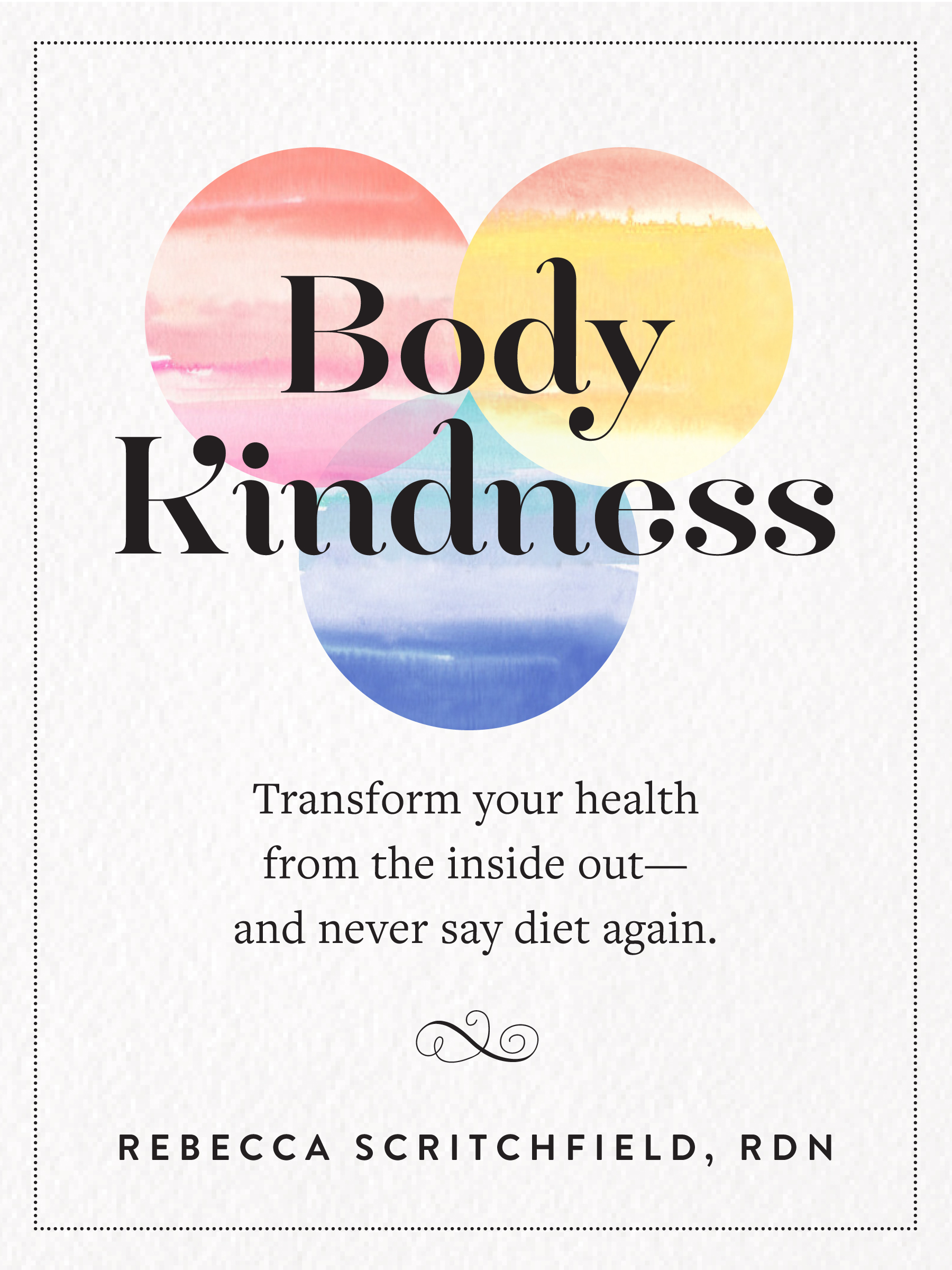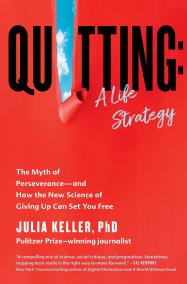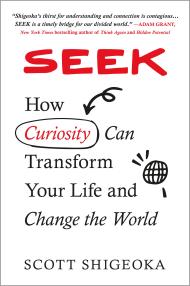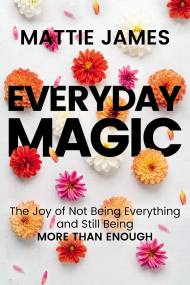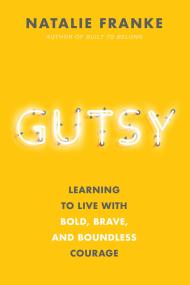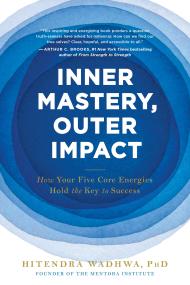Promotion
Use code MOM24 for 20% off site wide + free shipping over $45
Body Kindness
Transform Your Health from the Inside Out--and Never Say Diet Again
Contributors
Formats and Prices
Price
$10.99Price
$13.99 CADFormat
Format:
- ebook $10.99 $13.99 CAD
- Trade Paperback $15.95 $21.95 CAD
This item is a preorder. Your payment method will be charged immediately, and the product is expected to ship on or around December 27, 2016. This date is subject to change due to shipping delays beyond our control.
Also available from:
Create a healthier and happier life by treating yourself with compassion rather than shame.
Imagine a graph with two lines. One indicates happiness, the other tracks how you feel about your body. If you’re like millions of people, the lines do not intersect. But what if they did?
This practical, inspirational, and visually lively book shows you the way to a sense of well-being attained by understanding how to love, connect, and care for yourself—and that includes your mind as well as your body.
Body Kindness is based on four principles.
WHAT YOU DO: the choices you make about food, exercise, sleep, and more
HOW YOU FEEL: befriending your emotions and standing up to the unhelpful voice in your head
WHO YOU ARE: goal-setting based on your personal values
WHERE YOU BELONG: body-loving support from people and communities that help you create a meaningful life
With mind and body exercises to keep your energy spiraling up and prompts to help you identify what YOU really want and care about, Body Kindness helps you let go of things you can't control and embrace the things you can by finding the workable, daily steps that fit you best. It's the anti-diet book that leads to a more joyful and meaningful life.
Imagine a graph with two lines. One indicates happiness, the other tracks how you feel about your body. If you’re like millions of people, the lines do not intersect. But what if they did?
This practical, inspirational, and visually lively book shows you the way to a sense of well-being attained by understanding how to love, connect, and care for yourself—and that includes your mind as well as your body.
Body Kindness is based on four principles.
WHAT YOU DO: the choices you make about food, exercise, sleep, and more
HOW YOU FEEL: befriending your emotions and standing up to the unhelpful voice in your head
WHO YOU ARE: goal-setting based on your personal values
WHERE YOU BELONG: body-loving support from people and communities that help you create a meaningful life
With mind and body exercises to keep your energy spiraling up and prompts to help you identify what YOU really want and care about, Body Kindness helps you let go of things you can't control and embrace the things you can by finding the workable, daily steps that fit you best. It's the anti-diet book that leads to a more joyful and meaningful life.
Genre:
-
“simple and true" —New York Times Book Review
“[Scritchfield] provides fantastic tips for transforming your mental and physical health… a must-read."—TheHuffington Post
“[A] rousing guide to better health… Scritchfield’s work boils down complex behavioral science ideas into accessible self-improvement strategies.” —Publishers Weekly
“If you are ready to stop torturing yourself with diets and self-criticism and start nourishing your body and mind with healthy choices that help you reach your true potential, consider this wonderful book your road map. Scritchfield provides inspiration and real-life strategies in a fun and friendly style, with lots of helpful graphic tools."
—Ellie Krieger, MS, RD, host of Ellie’s Real Good Food on public television and award-winning cookbook author
“For all of us who’ve been caught up in punishing cycles of busyness, perfectionism, crazy cleanses, deprivation, too much work, joyless to-do lists, and too little sleep, Rebecca Scritchfield’s Body Kindness offers a refreshing antidote. In this common-sense, warm, and eminently practical guide backed by science and story, Scritchfield shows how taking time to pause and set our own internal compasses is the first step toward overcoming deeply held cultural expectations and transforming our lives.”
—Brigid Schulte, award-winning journalist and author of the New York Times bestselling Overwhelmed: How to Work, Love, and Play When No One Has the Time
"As a firm believer in the power of body positivity, I'm thrilled and impressed by Rebecca Scritchfield's amazing tips for manifesting a joyful, healthy outlook on life, and for honoring the body you have right now."
—Jessamyn Stanley, instructor, blogger, author of Every Body Yoga
“If you want to change, start by acknowledging your strength. And then read this book to walk your way into a life that feels as good inside as it does outside.”
—Julie Smolyansky, CEO, Lifeway Foods, and documentary film producer
“With clarity and compassion, Scritchfield tells us what we desperately need to know: Diet culture pretends to be about health, but actually makes us sick. We end up obsessing over our bodies and forget about our souls. Eating and exercise turn into chores, and self-worth gets dictated by the number on a scale. For anyone who’s been poisoned by superficial diet plans and strict food rules, this book is the perfect antidote. Read it if you’re ready to stop dieting and start loving yourself and your life!”
—Alan Levinovitz, PhD, author of The Gluten Lie
“What a pleasure to read such a sensible, self-loving book about improving one’s health. Rebecca Scritchfield’s Body Kindness method honors body diversity—for real! She’s not scamming her readers with bogus weight-loss promises. Her weight-neutral, compassionate, and practical approach to health allows people to make joyful, long-lasting changes in their self-care practices.”
—Connie Sobczak, author of Embody: Learning to Love Your Unique Body (and Quiet That Critical Voice!) and cofounder, The Body Positive
“Say good-bye to body-shaming and dieting. Body Kindness is a refreshing and timely book, which describes how health begins by being kind with self-care actions. Written in a friendly tone (as if you are talking to one of your best girlfriends), by a dietitian, who has overcome her own war with her body. Readers will enjoy the stories, infographics, and the many helpful action steps to make peace with food, body, and mind—once and for all!”
—Evelyn Tribole, MS, RD, coauthor of Intuitive Eating and The Intuitive Eating Workbook
“It is just not possible to hate yourself to health. Body Kindness is a comprehensive, compassionate, and honest user’s manual that guides you to nourish, move, care for, and yes, accept your body now.”
—Michelle May, MD, author of Eat What You Love, Love What You Eat
“Put down that diet book and smash your scale—they don’t help you get healthy! Rebecca has taught me that the best thing I could do for my health is to take care of my body and stop fighting it.”
—Bernie Salazar, MEd, At-Home Winner, The Biggest Loser, season 5
- On Sale
- Dec 27, 2016
- Page Count
- 224 pages
- Publisher
- Workman Publishing Company
- ISBN-13
- 9780761189756
Newsletter Signup
By clicking ‘Sign Up,’ I acknowledge that I have read and agree to Hachette Book Group’s Privacy Policy and Terms of Use

